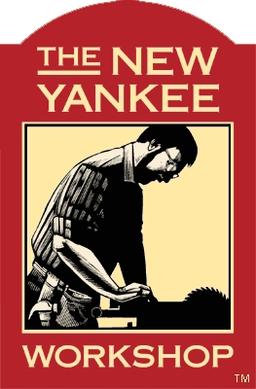- cross-posted to:
- [email protected]
- cross-posted to:
- [email protected]
Walnut and maple., it’s an inch and a quarter thick, 12 1/2 inches wide and about 17 inches long. While it is an end grain cutting board I actually built it with kneading dough in mind, I don’t intend to cut on this one, not for awhile anyway. Built it this weekend and baked some bread with it today. Which is why my mixer is covered in flour. I’m really happy with this one.


I’m here from all, so I’m ignorant, but I’m wondering is there a way to use this where you don’t get knife marks on it?
And also my uneducated butt says this thing is insanely gorgeous. If I saw that in someone’s kitchen I would absolutely comment on it, glowingly.
Welcome to the woodworking community and thank you for your kind compliments!
This board is designed to minimize the damage it takes from knives in two ways: First, it’s made out of two rather hard wood species, black walnut and hard maple. Take it from the man who hand planed it, it is NOT easy to push steel through this material. Second, it’s an end grain cutting board. All of the individual “boards” that make up the panel are turned end-grain up to present their “ends” to the cutting surface.
The obvious way to make a cutting board out of wood is to take a plank, put it on your counter and start cutting food on it. Try this and you’ll find it doesn’t last long, because your knife will sever the fibers in the surface which will start to detach into the food and leave slashes behind for bits of food and bacteria to fester in…not great. If you cross-cut that plank into wide but short strips, turn them 90 degrees so the end grain is facing up, and glue them back together, now you have a surface where all the fibers are standing vertically, and your knife will pass between them, often without actually severing anything.
You will sometimes hear end grain cutting boards called “self-healing” which is a bit of an exaggeration. Smaller knife marks may not have actually cut anything and instead just moved some of the wood fibers around a little, and changes in heat, humidity and mechanical action may put them back where they were and the mark disappears. Washing and oiling the board may take some of the shallower knife marks out.
Keeping your knife sharp and using good cutting technique will also minimize the damage done to any cutting board simply because you won’t have to push as hard to make the cut. Ultimately though the board is considered a wear item. It will start to show knife marks and even start to wear down over time. I have a wood shop, so if it starts getting unacceptably worn I can plane a few thousandths of an inch off, sand it, oil it and keep right on going. I plan on having this cutting board in service until I’m too old to handle kitchen knives anymore.
Also, it’ll be awhile before this particular board ever feels a knife; I’m using it as a dough kneading surface. I’ll continue to use this one for cutting.
Absolutely beautiful cutting board.
Thank you for providing such a detailed and friendly answer for newcomers - it’s so refreshing to see and really helps foster a great community.
Thank you!
Make sure to upvote flicker’s comment, they started it. Saying nice things about my project and asking genuine questions and all. Of course I was going to take the time to answer in what I hope is helpful detail.
Having cooking and baking also among my hobbies, I also hope that someone seeing this post in their All feed learns what end grain cutting boards are, why they want one, and make the investment, hopefully one made by a local craftsman. Using a quality knife on a quality cutting board elevates the experience of making a meal.
It absolutely did work. I have a garbage cutting board I got from some big box store, and it’s all knifed to heck and back. I’m a chef and a baker myself, so now that I know there’s another, better way, I must get a proper cutting board!
Which is also why I asked about upkeep. I saw that board and thought, okay, but if it gets all those cut marks like the one I’ve had now for less than a year, what’s the point?
Thank you so much!
That older board I linked above? Here’s what it looks like after a year of service. They do take scars especially from pizza wheels apparently, but there’s no splintering, there’s no bits fraying off into the food, and if it’s too scarred up I can sand it smooth and keep using it. Compare that to a plastic board where I’m almost afraid to cut chicken on them twice.
It’s a cutting board, it needs knife marks.